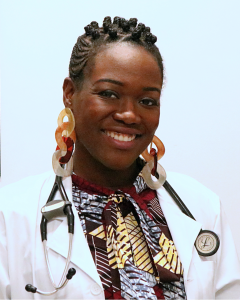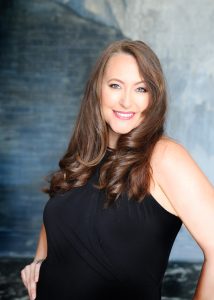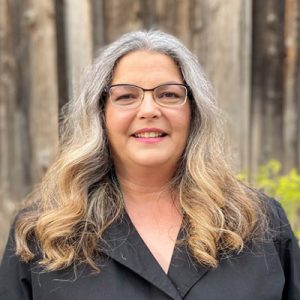Small Steps for Indigenous Health Inclusion in Medical Curricula
May 2/2022
by Françoise Makanda, DLSPH
After three years of ardent work, the Public Health & Preventive Medicine Program is taking its first steps in Indigenizing its curriculum.
But program leads Profs. Onye Nnorom and Barry Pakes are not rejoicing just yet.
“We hope to Indigenize or at least decolonize our curriculum,” says Nnorom. “But this is a baby step.”
A working group comprised of Profs. Angela Mashford-Pringle, Pakes, Nnorom, Ross Upshur, consultant Dawn T. Maracle and Resident Mary Choi focussed on making small changes to integrate Indigenous teachings into the curriculum last year.
Residents were tasked to incorporate relevant Indigenous knowledge in lectures with peers on standard public health content with Maracle’s guidance. The level of expertise and standards expected for these roles is significant as residents are often asked to prepare rounds for peers and faculty members across the province.
The project began as a pilot in Fall 2021. Dawn Maracle, who is Mohawk from Tyendinaga Mohawk Territory, and DLSPH’s Indigenous Health Lead Angela Mashford-Pringle, an Algonquin of the Timiskaming First Nation, reviewed the curriculum and guided students throughout the pilot.
“We did a land acknowledgment field trip with residents last June,” says Maracle. “We talked with senior residents about positionality and going deep into land acknowledgements. How to enact them and why we do them. Residents were so moved by the experience that they initiated leadership steps to create their own document about what actions they can take through their land acknowledgements, including partnering with Indigenous organizations and institutions about Indigenous-led solutions and ideas.”
They also created a living document about their commitments that they plan to pass on to future residents. Indigenous knowledge should never be siloed, says Maracle.
“Siloed topics is an old Western way to look at things— Indigenous knowledge needs to be integrated at every level,” says Maracle. “It’s so well documented that the health profession is underprepared to work with racialized populations. We’ve seen stories of them being treated poorly in the system.”
Maracle has always marvelled at former Pro-Vice-Chancellor Graham Hingangaroa Smith who included Maori content in every course at Auckland University in the 1990s.
“Canada is woefully behind,” says Maracle. “People were fighting for one Indigenous course in a variety of programs and that was 30 years ago. We should be far ahead of that. There are Indigenous issues to consider in public health as well as in many other topics. So, while there are absolutely inequity and population health issues, there should be Indigenous health throughout the medical curriculum. It is the only way to prepare the health profession to competently do their jobs.”
The courses are not easy – Mashford-Pringle says that the subject matter is uncomfortable. “It’s feeling like you’ve got a wool sweater on, and you have a wool allergy; you will start to understand it’s not just Indigenous Peoples, but People of Colour, ableism, sexism,” she says. “You’ll start to open up that intersectionality piece and you’ll say, ‘wait a second, I’m complicit and I didn’t know that was a problem,’” says Mashford-Pringle.
Although a grant from Temerty’s Faculty of Medicine provided enough support for Maracle to offer guidance to students this Fall, many felt unprepared to meet expectations. There’s also a lack of capacity. “I know there is a thirst for this knowledge, but we don’t have enough Indigenous people doing this kind of work at U of T, or more broadly,” says Mashford-Pringle.
Nnorom also believes that while the training and toolkits are useful, these can’t compare to the lived experience and support from experts like Maracle and Mashford-Pringle. Additional support is key to truly Indigenize the curriculum. Nnorom’s counterpart like University of Ottawa’s Dr. Sarah Funnell shares similar thoughts.
“Dr. Funnell says what we need to be aiming for is that our residents when they graduate as public health practitioners are trauma-informed, culturally safe, and have an anti-racist lens to their practice. So, for us it was how do we weave in concepts of Indigenous knowing into the curriculum instead of it being a standalone thing like an Indigenous health lecture,” says Nnorom.
The death of Joyce Echaquan is a stark reminder of what happens when healthcare providers fail the communities they serve. And while public health practitioners are not always in the medical trenches, there are many like Echaquan who are missed or neglected in population health, says Mashford-Pringle. They are the future Chief Medical Officers of Health.
“I’m sick of hearing community members tell me how poorly they were treated in different sectors, specifically the health care sector. And these are public health professionals. These are going to be our future medical officers of health in public health units,” says Mashford-Pringle.
Pakes, Nnorom and Maracle have met with other program leads in Ontario to scale up this initiative— baby steps, Maracle says.
“If I had a magic wand, the whole thing [system] needs to be overhauled – with those in power behind us, resourcing the initiative, in alignment with the TRC’s Calls to Action. There must be truth, justice and reconciliation and most people don’t yet know what that means,” says Maracle.
“It’s going to take a long time. The Honourable Murray Sinclair said, ‘education got us into this mess, it will get us out.’ But we have to work together.”


